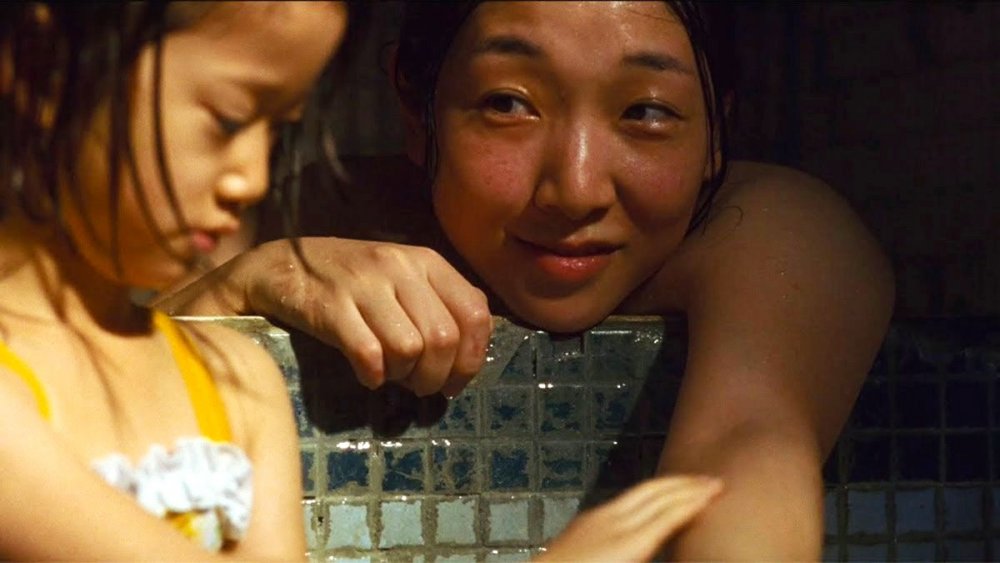There's absolutely no doubt that Kore-eda can put a beautiful shot together. There's quite a lot of them in this film, which makes sense given it aims for a fairytale vibe – all slow pans and zooms over twinkly music. There's also no denying that this film drifts intolerably, and no amount of lovely camerawork can save it.
The premise is almost all there is. A sex doll is given life and a "heart", and wanders around the city observing the lonely souls that inhabit it. The very obvious point that these people share something of the emptiness and awkwardness of the doll is made early and often. As with other Kore-eda films, the stress is on the need for human connection. But unlike his other films, which major on how such bonds develop in adverse circumstances, here the doll is too alien to ever truly be able to bridge the gap and create a community among the misfits. That remains a dream she dreams as she's dying, although her death amidst the rubbish does appear to inspire another wastrel to mend her ways.
That incompatibility must be behind the most inscrutable part of the film, where the boy that has fallen in love with the air doll wishes to perform a strange sex act on her – letting out her air and blowing her up again. It it an indication of a sadistic sexuality? Or perhaps a way of asserting control in an otherwise powerless existence? Or perhaps an attempt to give pleasure? The film is enigmatic on the point, but firmer on the doll's desire to breathe something back into the people who look after her. She fails the first time – with disastrous consequences that recall Oshima's infamous In The Realm of the Senses. But her suicide does the trick, although even then the effect seems to be ephemeral. The big city doesn't allow for true, "natural" connections to be made. Yawn.
Showing posts with label Hirokazu Kore-eda. Show all posts
Showing posts with label Hirokazu Kore-eda. Show all posts
5.1.19
14.12.18
Shoplifters (Shoplifting Family)
The premise of the film is that a family of thieves kidnap a young girl and adopt her – they turn from stealing things to stealing people. You could extend the thieving metaphor to the entire family. They are not related by blood – their bonds are formed by money and necessity. But this is Kore-eda's 'socially-conscious' film, and so what would on the surface look like reprehensible behaviour becomes more explicable once you inhabit the house and become one of the gang. The child they have adopted was being abused by her parents. Her older 'brother' was left in a car while his carer was playing pachinko. The central couple are on the run after a murder of an abusive husband (in self-defence), and while they room with a grandmother whose pension helps them get by, they have in a sense adopted her as well after she was 'thrown away' by her real family. The film keeps returning to the idea that this family is chosen rather than the result of an accident of birth. And in some ways that makes it more honest.
The only other Kore-eda film I've seen is Our Little Sister, which tells a similar tale of family formation but in a more comfortable, middle-class setting. That film was cute, but it meandered aimlessly and slipped too easily from drama to melodrama. Shoplifters is much tougher – the only slightly soppy moment is when the boy finally uses the word 'father' to describe his relationship with his carer and mentor. And even then it's undercut first by the awareness that he's unlikely to see his adopted family again, and then further when we switch to the girl looking out of her balcony in the hope of being saved from her real parents by her adopted family. The genius of the film is to turn that theft, and all the other stealing we see, into an act of kindness.
The only other Kore-eda film I've seen is Our Little Sister, which tells a similar tale of family formation but in a more comfortable, middle-class setting. That film was cute, but it meandered aimlessly and slipped too easily from drama to melodrama. Shoplifters is much tougher – the only slightly soppy moment is when the boy finally uses the word 'father' to describe his relationship with his carer and mentor. And even then it's undercut first by the awareness that he's unlikely to see his adopted family again, and then further when we switch to the girl looking out of her balcony in the hope of being saved from her real parents by her adopted family. The genius of the film is to turn that theft, and all the other stealing we see, into an act of kindness.
Subscribe to:
Posts (Atom)
